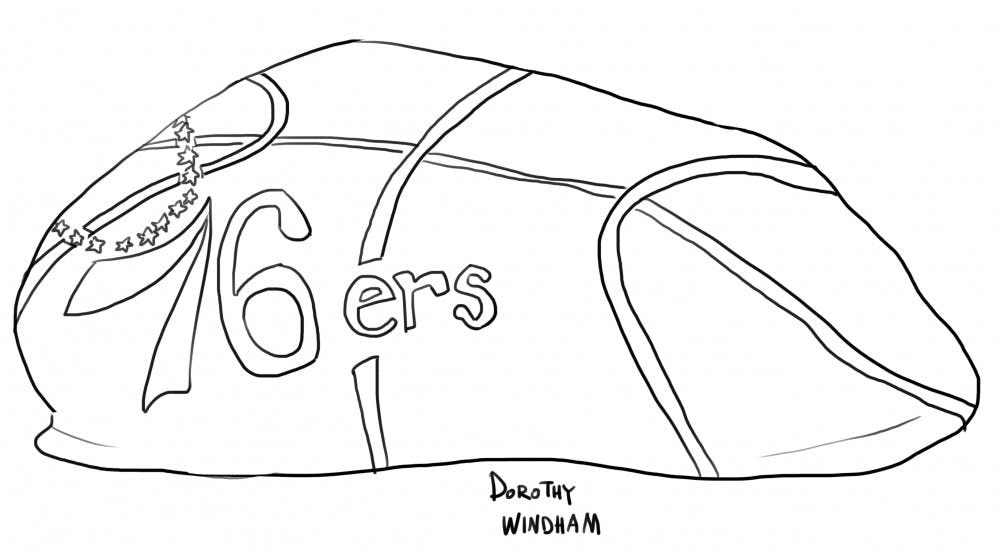At the end of every NBA season, the inevitable discussion surrounding the tactic of “tanking” emerges. For those who are unaware, NBA teams with no hope of reaching the playoffs “tank” — lose games on purpose — in order to secure a better position in the NBA draft lottery. The flawed lottery system, in which the worse a team’s record is, the higher its chance of getting a top pick, creates this phenomenon. The team with the worst record in the league has a 25 percent chance of getting the number one pick, the second worst team has a 19.9 percent chance, the third worst team has a 15.6 percent chance and so on.
The problem with this system is that once a team knows they have no hope of reaching the playoffs, they will begin to tank. Tanking does not mean players playing badly and losing on purpose. Jobs are on the line and players have too much pride and incentive. Teams will rest their better players or hold them out with “injuries,” and bench players will get more playing time so the team’s performance will suffer. For example, the Lakers shut down Timofey Mozgov and Luol Deng on March 15 for the rest of the season, even though both players have massive contracts. The Phoenix Suns, in their Tuesday night game against the Sacramento Kings, played 33-year-old guard Ronnie Price — who averaged 1.0 points per game on .167 percent shooting in 14 games — for 19 minutes. A look around the league’s basement-dwellers reveals similar tactics across the board.
And why wouldn’t teams employ this strategy? The NBA is a star-driven league, and stars are found at the top of the draft. The worst thing to be in the NBA is mediocre. The Oklahoma City Thunder rose to prominence thanks to high draft picks, such as Kevin Durant in 2007, Russell Westbrook in 2008 and James Harden in 2009. Their success would not have been possible without losing first.
During the reign of Sam Hinkie as general manager of the Philadelphia 76ers, tanking came under fire. Purposefully losing games season after season, Hinkie stockpiled assets above all else. Though the losing eventually cost Hinkie his job, the fruits of his labor have ripened. The 76ers now have the unfairly talented — albeit oft-injured — Joel Embiid and Ben Simmons alongside Rookie of the Year contender Dario Saric and a host of other advantageous pick swaps. Philadelphia is widely considered to have one of the brightest futures of all the current non-playoff teams.
The tactic of tanking puts fans in an awkward position. In many cases, it’s better for their teams to lose, but it is not much fun to root for a tanking team. The Lakers won five consecutive games toward the end of the season — and this upset Lakers fan. Tanking is a no-win situation. The fans don’t get to see their team’s best players, and the joy of short-term victory is tainted by long-term loss.
How can this be fixed? A number of theories have gained attention in recent years. One popular proposal is the “wheel,” in which teams would cycle through a certain series of picks, getting the first pick once every thirty years — thirty teams, thirty picks on the wheel — and one top-six pick every five seasons. The issue with this proposal is that it would be easy for bad teams to lose fans. A team could come in last and not have a top pick for another four seasons. As fans of the Brooklyn Nets know, it’s hard enough to wait two seasons — four would be an eternity.
Sports personality Bill Simmons popularized another possibility, which he calls the “Entertaining-As-Hell-Tournament,” a single-elimination tournament held after the end of the regular season for the eighth seed in the playoffs. While this certainly is a more exciting and intriguing idea, there are problems with its implementation. Scheduling would be an issue — a week-long tournament held after the regular season and before the playoffs would be a hassle for waiting fans of playoff teams. The biggest issue, though, is that this tournament simply wouldn’t matter very much. The NBA playoffs have less parity than other major sports’ postseasons, since it’s easier for stars to dominate the proceedings. A tournament for the honor of being obliterated in four or five games by the first seed isn’t intriguing enough for this to be sustainable.
I suggest a far better option: A tournament among the lottery teams for the first pick. This tournament could run concurrently with the first round of the playoffs, eliminating the long waiting period. Fans would be far more invested in the possibility of taking the first pick, as there is a lot more at stake than a lowly first-round exit. Teams would no longer tank in the regular season, since seeding matters. Imagine the drama of a tournament championship next week — Nikola Jokic and the Denver Nuggets versus Hassan Whiteside of the Miami Heat battling it out to play alongside potential number one pick Markelle Fultz in order to form a title contender.
As long as there’s no more Ronnie Price playing big minutes on a languishing, lackadaisical Suns team in front of a bored arena, it’s a win-win.
George Klein ’20 can be reached at george_klein@brown.edu. Please send responses to this opinion to letters@browndailyherald.com and other op-eds to opinions@browndailyherald.com.





